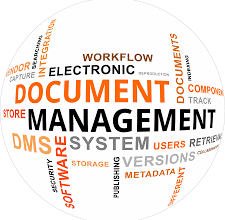The need for contract management software is growing as a result of the complexity and uncertainty of today’s corporate environment. Legal experts and other professionals can develop, negotiate, renew, and gather data on current business contracts with the use of contract management systems. In this piece, we defined contract management and compiled a list of the best enterprise contract management systems for your small business.
Join us as we get started!
Contract Management
Contract management is the process of managing contracts through formation, administration, and analysis to maximize an organization’s operational and financial performance while minimizing financial risks. Organizations are under increased pressure to save expenses and improve company performance. Contract management is a time-consuming aspect of a company, highlighting the requirement for an efficient and automated contract management system.
What Are Contract Management Systems?
The contract management system is an advanced way of keeping tabs on all your contracts. This system uses software programs, data, and instructions to make it easier and faster to manage legal agreements and increase the effectiveness of the procurement procedure.
Using contract management software, businesses can draft their contract, agree upon it, sign it, renew it, and while this is ongoing, actionable data is gathered. It helps lawyers and other contract workers to replace the manual management of physical contracts for firms to handle large contract volumes quickly without employing more staff.
Why Is Contract Management So Important?
80% of B2B sales are governed by contracts, therefore poorly managed contract processes can put companies in serious legal danger. The IACCM found that 92% of the time spent on contracts is spent in the process, which is similar to how inefficient manual contracting wastes a lot of time.
The ability of a business to close deals may suffer from a lack of velocity, and bad contract administration encourages disagreement across teams. Poor lifecycle management can lead to missed deadlines and hefty renewal fees. One of the main objectives of contract management is the establishment of a record-keeping system to lower this risk.
Who Uses Contract Management Software?
The legal, sales, human resources, procurement, and finance teams are the primary consumers of contract management solutions, although each firm will have its own particular needs.
#1. Law firms
Legal frequently “owns” the contractual process at a corporation. In-house legal teams use contract management software to update their templates and produce documents regularly. This enables their coworkers across the organization to do the same.
#2. HR Groups
Big firms’ human resources departments generally produce many contracts since they frequently hire new employees. HR typically uses contract management technology to draft employment contracts that have been reviewed by attorneys despite being non-lawyers. Some products interact with the popular HR software systems Workday and Greenhouse.
#3. Sales Teams
Because they hate anything that gets in the way of closing deals, sales usually use a contract management tool to generate contracts quickly rather than having to hire an attorney to do it. Users of sales software frequently choose options that work with the daily-use software they use, like Salesforce.
#4. Finance Groups
Finance teams typically want access to contracts for a variety of reasons. They must evaluate contracts and invoices and provide accurate revenue predictions for their business. Such transparency is made feasible through contract management software.
Best Top Contract Management Systems
To identify the best contract management solutions, including customization and automation, we evaluated more than thirty vendors using a set of criteria.
#1. DocuSign
DocuSign started as an e-signature business in 2003, and businesses use it frequently since it is user-friendly for all parties. Although end-to-end solutions are available for workflows that involve a lot of contracts, according to our study, DocuSign’s e-signature plans are optimal for small organizations. You can use this browser-based program online or DocuSign’s mobile app for Android and iOS to take your contracts with you everywhere you go. Reusable templates, recipient reminders, payment collection, real-time comment alerts, and content repositories are just a few of the capabilities offered by e-signature and CLM programs.
#2. Concord
Concord was founded in 2014, and its straightforward layout aids businesses in keeping track of modifications and compliance throughout the lifespan. It can be set up quickly, and all plans include complete onboarding assistance. With a personalized approval procedure, reports, analytics, and user groups, they also offer a ton of flexibility. It has connections to Salesforce, DocuSign, and Dropbox. The business uses secure data centers and encryption that meets bank industry standards. Additionally, you gain from stringent versioning guidelines that create a new log each time a field is added to or changed and give you a reliable audit trail. Live editing, Redline, commenting, chat, template storage, and autofill smart fields are some of the top CLM features.
#3. PandaDoc
With its user-friendly software, PandaDoc, which was founded in 2011, enables you to manage the whole lifespan of your contracts. This offers custom themes with a simple drag-and-drop editor for rich media. Additionally, you can create unique workflows, procedures, and rules. Customers value the 15 customer relationship management (CRM) connectors, including those with HubSpot, Pipedrive, and Microsoft Dynamics.
Monthly or annual plans are available for the PandaDoc CLM software, and you can save up to 34% by paying yearly. PandaDoc provides specialized solutions if you require a Health Insurance Portability and Accountability Act (HIPAA)-compliant program. Its powerful tools, like the Content and Contract Library, Contract Duplication, E-Signature, Real-Time Notifications, as well as Payment Processing, assist businesses in no small way.
#4. ContractWorks
Since 2012, ContractWorks has provided quick-to-install software that is easy to use. Because of its AI-powered automatic smart document tagging, ContractWorks is the perfect option for your automation requirements. Users appreciate how easy it is to use, particularly the drag-and-drop download function and the OCR text-based search engine that resembles Google. Included are many popular features, such as Automatic smart contract outlines, Contract repository, Milestone notifications, Automatic recordkeeping, etc.
ContractWorks offers a variety of customization options, including branding and reports that let you select which data point to look at. Planning, sharing, exporting, and saving your reports are very straightforward. The Professional and Enterprise plans of the program provide Salesforce connection.
#5. Agiloft
The list’s oldest provider, Agiloft, was established in 1991. However, it has continued to be updated often, providing access to bespoke solutions for businesses of all sizes. You may create unique workflows, routing procedures, reports, and even a custom dashboard to monitor your key performance indicators (KPIs) and alerts thanks to its code-free setups. Agiloft connects with Google and Microsoft to provide easy document uploading using the business applications you already use. Every business gains from free online training, the ability to author contracts, a clause library, and print-ready contracts
Enterprise Contract Management Systems
To enable simple, thorough administration, enterprise contact management combines a company’s duties into a single CLM system. Enterprise contact management streamlines the process by substituting automated systems for ineffective human contract management techniques. A collection of contracts, terms, and templates can be organized for standardization and convenient retrieval if you have a computerized contract administration system in place. The following are examples of enterprise contract management systems;
#1. PandaDoc
The first on our list of enterprise contract management systems is PandaDoc. Through the elimination of the labor-intensive components of document workflow, PandaDoc has helped more than 30,000 growing businesses succeed. With the help of PandaDoc, a comprehensive platform for automating document workflows, teams with high growth may create, manage, and sign many types of digital documents, including quotes, contracts, and more.
#2. LinkSquares
Another great tool that is part of our enterprise contract management systems is LinkSquares. LinkSquares provides true end-to-end CLM with solutions for pre-signature, e-signature, and post-signature that are remarkably intuitive, all created for today’s legal teams and powered by AI. The features offered by LinkSquares include a natively built e-signature tool, proprietary OCR, full-text search, contract templating and self-service drafting, customized reporting and notifications, version control, solid integrations, and automatic extraction of more than 100 important contract dates, clauses, and terms.
#3. DocuSign CLM
Although eSignature has changed the way many businesses handle contracts, manual processes, spreadsheets, and emails are frequently used to manage the lifecycle before and after signature, which slows down corporate operations, increases risk, and annoys customers and employees.
Enterprises can reduce the length of the agreement lifecycle by using DocuSign CLM (Contract Lifecycle Management), which transforms analog manual operations into digital automated workflows. The result is a faster pace of business, greater compliance, and more productive employees.
#4. DealHub.io
DealHub’s distinguished Revenue Platform offers the most comprehensive and integrated revenue workflow for your company. Sales teams can close new and subscription businesses and move prospects through the sales funnel from any place thanks to the zero-code platform.
#5. Accelo
Worldwide, reputable service providers use and admire Accelo for efficiently handling customer work. From prospect to payment, the end-to-end cloud-based platform controls all aspects of providing client work, including sales, projects, tickets, retainers, timesheets, resourcing, and more, wherever you are.
Accelo increases productivity by streamlining workflows and enhancing visibility throughout the organization and teams. Leaders may better manage the company as a result, and experts can concentrate on the most important duties. By using robust automation, managers may simply complete projects on time and within their allocated budget. Executives have the confidence they need to make informed decisions thanks to Accelo’s secure and up-to-date analytics, ensuring the growth and success of the business.
#6. ContractWorks
The last on our list of enterprise contract management systems is ContractWorks. ContractWorks makes it simpler to execute, store, and track corporate agreements. With its quick implementation, simple user interface, and low price starting at $600/month for unlimited users, ContractWorks makes contract management software accessible to businesses and teams of all sizes. You’ll receive a team of dedicated support specialists to help your business make the most of your contract portfolio in addition to the tools you need to manage your contracts.
What Is a Contracts Management System?
The creation and monitoring of contracts, service level agreements (SLAs), and purchasing master contracts are all handled by a contract management system, or CMS, also known as control lifecycle management.
What Are the Types of Contract Management?
There are three major sorts of contracts: Fixed Price Contract (FP) Time and Material Contract (T&M) Cost Reimbursable Contract (CR)
What Are the Benefits of a Contract Management System?
The following are the major benefits of contract management systems;
- Speeding up the review and execution of contracts.
- Reducing business risk and enhancing compliance
- A single source of truth, expanding contract visibility.
- Better renewals can be negotiated in less time.
- Document management with value.
- Best Practices for Privacy and Contract Protection.
What Are the Four Components of Contract Management?
The following are the four components that make-up contract management;
- Establishing the team for contract management and governance.
- Contract administration planning, setup, and execution.
- Relationship administration.
- performance management.
What Are the Stages of Contract Management?
The following are seven steps to managing contracts effectively.
- The phase of planning
- Pre-contractual phase.
- The handover phase
- Contracting stage.
- Preliminary renewal phase.
- Post-contractual period.
What Are the Types of Contract Management?
- Fixed Price Contract (FP)
- Time and Material Contract (T&M)
- Cost Reimbursable Contract (CR)
What Are the Benefits of Contract Management
- Improve productivity
- Collaboration
- Time-saving
- Increases the visibility of contracts.
- Cuts costs.
- Lowers business and regulatory risks
Conclusion
Rather than waste time trying to get things done yourself using traditional methods, you can automate the process and get things done in record time. Since it’s easier to develop, renew or negotiate a contract using contract management systems, it’s a much better option than trying to do things yourself.
- CONTRACT LAWYER: What You Need To Know About a Contract Lawyer
- CONTRACT MANAGEMENT TOOLS: What It Is, Free Tools and Application
- Top Benefits of Using Contract Lifecycle Management for Small Businesses
- Best Sales Enablement Tools 2023: (Top 15+ picks)






